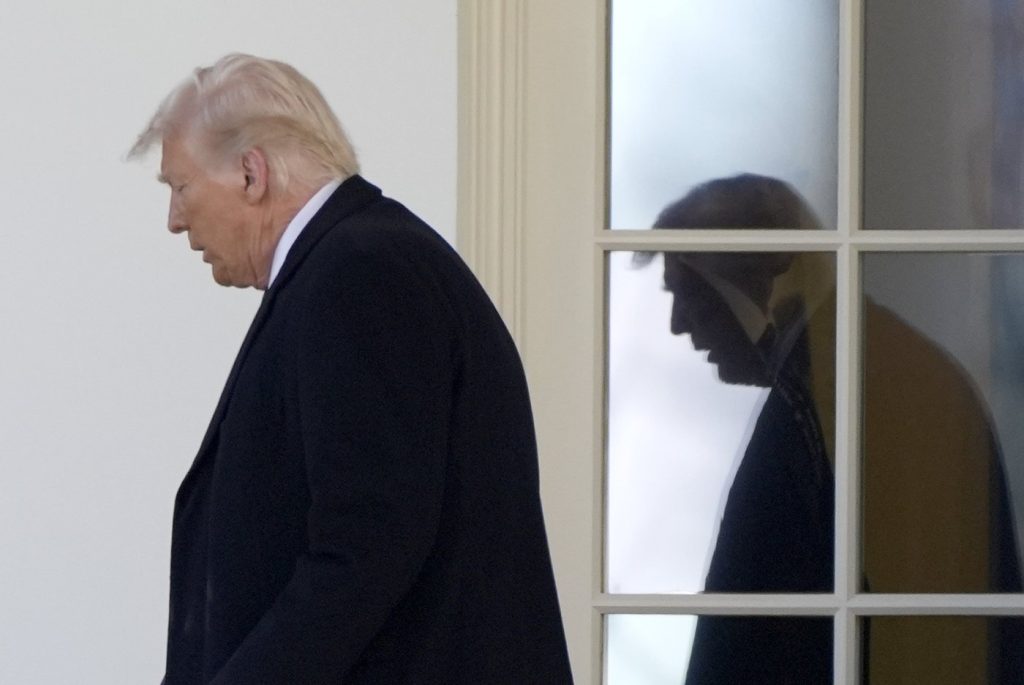As President Donald Trump nears the one-month milestone in his second term, he has rapidly enacted policies that aim to transform American social, political, and economic landscapes while reshaping the country's global position. Central to these efforts is the involvement of Elon Musk, a billionaire entrepreneur, who is assisting in significant layoffs of federal employees and potentially closing entire government agencies.
Trump's aggressive agenda has largely overshadowed his stringent immigration policies at the U.S.-Mexico border, as well as attempts to dismantle diversity, equity, and inclusion initiatives and restrict transgender rights. Additionally, he has introduced a series of tariffs against trade partners, which experts warn may lead to increased consumer costs and further inflation.
In the initial weeks of his term, Trump's administration began mass layoffs of thousands of federal employees, particularly those still in their probationary periods. These abrupt dismissals have affected a wide range of workers, including medical scientists, foreign service employees, and even human resources personnel responsible for the layoffs. The administration is reportedly attempting to cut down the workforce of the Consumer Financial Protection Bureau, aiming to erase its data accumulated over the past 12 years, although legal injunctions have temporarily halted these efforts.
Legal challenges to Trump’s initiatives commenced on Inauguration Day and have proliferated since January 20, with the administration currently facing around 70 lawsuits challenging its executive orders and workforce reductions. The Republican-dominated Congress has shown minimal resistance, leading to a flurry of judicial rulings—over a dozen so far—that have blocked various aspects of Trump's agenda, including a controversial move to end automatic citizenship for those born in the U.S.
The economic outlook has taken a turn for the worse, with recent data revealing a monthly inflation rise of 0.5% and a consumer price index increase at an annual rate of 4.5% over the previous three months. Retail sales also dropped by 0.9% in January, indicating potential weakening consumer confidence. The Federal Reserve reported a slight decrease in industrial production, primarily due to a significant downturn in motor vehicle manufacturing.
Trump’s trade policies have evolved to include new tariffs aimed at matching rates imposed by other countries, which have drawn criticism from foreign governments for their perceived inequity. The administration's tariffs, coupled with additional proposals targeting autos, computer chips, and pharmaceuticals, reflect Trump’s dual aim of negotiating better deals and generating revenue.
Congress, as the primary body responsible for federal spending, is experiencing a shift in power dynamics due to Trump’s sweeping executive actions. While some Republican leaders express limited enthusiasm for Musk's initiatives, discontent is bubbling up among party members about the impact of these federal cuts on local interests. On the Democratic side, lawmakers have staged protests against Trump and Musk's actions, advocating for legislative protections for various programs.
In foreign policy, Trump has initiated dialogue with Russian President Vladimir Putin, aiming to facilitate negotiations to end Russia's conflict with Ukraine. However, Ukraine's President Volodymyr Zelenskyy has indicated that he won't engage in talks until a viable peace plan is established. Trump’s outreach has been met with scrutiny from European leaders, particularly regarding his stance on NATO membership for Ukraine and security guarantees.










